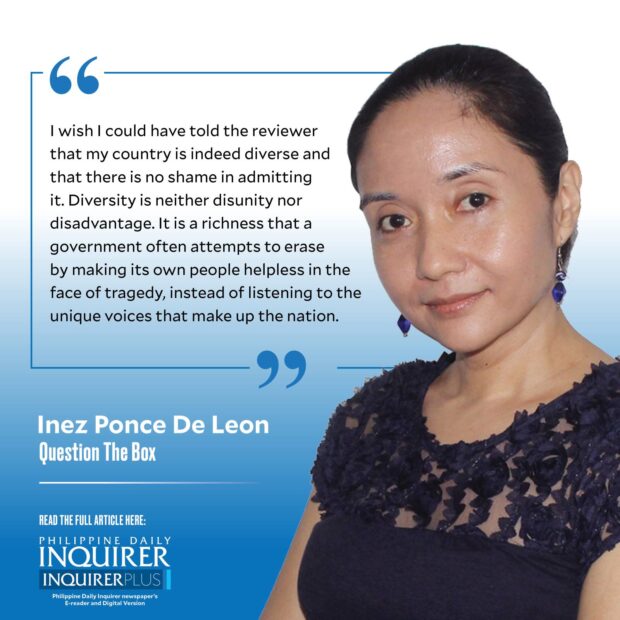Research is the Top Priority for University Professors
Research is an essential aspect of the work of university professors. It involves gathering and analyzing data, writing manuscripts, and submitting them to academic journals for publication. However, the publication process is not straightforward. Journal editors have the discretion to either reject papers outright or send them for peer review by a panel of experts. Peer review can be a lengthy process, and there are no guarantees of publication until reviewers give their full approval.
During my involvement in a project studying the communities affected by Supertyphoon “Yolanda,” we took a different approach. Instead of questioning why people didn’t follow warnings, we focused on understanding how they interpreted the warnings and what lessons they had learned from previous experiences. We embarked on fieldwork in Guiuan, Palo, Coron, Camotes, and Roxas, conducting focus group discussions and interviews. The aim was to build a comprehensive narrative that captured how individuals in each location perceived storms and storm warnings. It became evident that each province had its unique story, and to do justice to the data, I had to create separate papers for each location.
When I submitted my third paper for peer review, I was shocked to receive a letter from the editor accusing me of plagiarism. The reviewer argued that since I had used the same research technique in different places within the same country, my findings would naturally be identical, rendering my work redundant. Outraged, I quickly composed a response, defending my research: “We are a country with over a hundred different languages and cultures spread across thousands of islands. I urge you to read the manuscript and compare it to my previous work.” Fortunately, the editor vindicated me and forwarded my letter to the reviewers. After several months and revisions, the journal eventually published my paper.
Reflecting on this incident, I realized that what upset me most was not being accused of plagiarism but the insinuation that our country’s people were all the same. It saddened me to think that research would be invalidated if it highlighted the unique contexts in which we live. I wished I could have conveyed to the reviewer the diverse perspectives we encountered during our fieldwork. Like the group in Guiuan, who expressed a desire to have heard the word “tsunami” because they felt the storm surges they had witnessed on TV were too weak. Or the Coron group, who insisted on using the term “storm surge” instead of “daluyong” because the latter was not widely understood. And the Palo group, who cared little about warnings, solely seeking the assurance of relief goods.
I longed to make the reviewer understand that our country is indeed diverse, and there is no shame in acknowledging it. Diversity does not imply disunity or disadvantage; it is an invaluable asset. Unfortunately, our government often tries to suppress this richness, making our own people vulnerable in times of crisis, rather than recognizing the unique voices that comprise our nation. This tendency to disregard diversity persists, especially in the current climate where blind obedience and respect for authority are expected. It stems from centuries of colonization, where those in power established boundaries based on rulers rather than gaining intimate knowledge of the cultures and peoples they encountered.
Boundaries are not merely lines on a map; they have far-reaching consequences. Boundaries divided the vast lands of the Middle East, dispersing tribes and confining warring factions within a confined territory. Boundaries enabled a suffering people to establish control over a state, turning it into an open-air prison and subjecting another group to decades of bombing and starvation. Boundaries facilitated the growth of terrorist organizations, leveraging deep-seated resentments to indoctrinate the marginalized into lives of violence. The wars and conflicts we witness today were born out of these boundaries, fueled by the colonizer’s belief that their outsider perspective was both objective and superior, as they remained blind to the pain they inflicted.
This discourse of standardization and supposed objectivity introduced by colonizers continues to permeate the research arena today. Voices from the Global South, like ours, are often overlooked and dismissed, while simultaneously being denigrated for not producing enough publications. However, if an academic from the Global North tells our story, they are hailed as courageous, insightful explorers. I have managed to publish all my articles for each province I studied, each one portraying a unique narrative. Nevertheless, I have encountered skepticism, even from fellow Filipinos, who consider showcasing diversity as further dividing our already fractured nation. Their narrow definition of unity lacks any empirical or rational basis. It is as if they, too, embrace the colonizer’s discourse of standardization, simplifying experiences, and suppressing those who fiercely defend their forcibly taken land.
We are not just an archipelago to be confined by dashed lines, vulnerable to invasion by foreigners who fail to comprehend our richness. We are not a single homogeneous people scattered across different islands, devoid of distinct cultures and aspirations. We are Filipinos, a diverse people with a multitude of experiences and perspectives. We are not uncivilized, unintelligent, or subhuman – no human being is.
Subscribe to stay updated with our research:
If you have any inquiries or would like to contact us, please email [email protected]
Denial of responsibility! Vigour Times is an automatic aggregator of Global media. In each content, the hyperlink to the primary source is specified. All trademarks belong to their rightful owners, and all materials to their authors. For any complaint, please reach us at – [email protected]. We will take necessary action within 24 hours.


